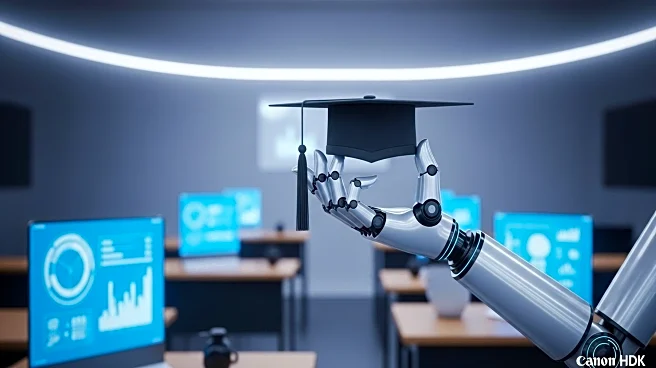What is the story about?
What's Happening?
Artificial intelligence (AI) is transforming educational systems by enhancing productivity and personalization in classrooms. However, a study by Andrew J. Peterson from the University of Poitiers highlights a potential misalignment between the skills taught and future job market demands. The research, titled 'Training for Obsolescence? The AI-Driven Education Trap,' warns that AI's role in automating tasks could lead to an education system focused on skills that may soon be devalued. The study models the decision-making of education planners who prioritize current learning outcomes without considering future wage effects, resulting in systemic inefficiencies. AI encourages schools to focus on easily teachable skills, which may not hold long-term value as automation advances.
Why It's Important?
The study underscores the risk of an 'education trap,' where curricula are skewed towards skills vulnerable to automation, potentially leaving students ill-prepared for future job markets. This misalignment could exacerbate the skills gap, affecting economic competitiveness and workforce readiness. The research calls for a shift in educational priorities towards non-cognitive skills like adaptability and emotional regulation, which are less susceptible to automation. Addressing this issue is crucial for aligning human capital development with labor market needs, ensuring that future generations possess the skills necessary to thrive in an evolving economy.
What's Next?
To mitigate the risks identified, the study suggests several interventions, including integrating labor market foresight into educational planning and recalibrating incentives to emphasize non-cognitive skills. Schools are encouraged to adopt a cautious approach to AI integration, ensuring that technology enhances both cognitive and non-cognitive skill development. Differentiated educational pathways are recommended to provide universal digital literacy while fostering advanced expertise. These measures aim to align educational systems with future economic realities, preventing the erosion of mid-level competencies and ensuring students are equipped for the challenges of the future job market.















